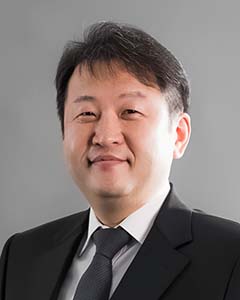As many economies start to reopen, South Korean companies are racing to expand their global outreach. According to figures released by the country’s Ministry of Trade, Industry and Energy, exports have jumped 39.7% year-on-year in June, reaching the third-largest value on record, at USD54.8 billion.

Senior Vice President
KICA;
General Counsel and VP
SK Biopharmaceuticals;
International Arbitrator
KCAB International
It also showed that exports in May surged 45.6% on the previous year, the sharpest expansion in 32 years, with semiconductors and vehicles making the top products and signalling a robust demand globally.
In May, the government unveiled an ambitious plan to spend USD450 billion to establish the world’s largest semiconductor supply chain by 2030, joining a global competition to dominate in this key technology.
The UN Conference on Trade and Development (UNCTAD) is set to reclassify South Korea as a developed economy from its former developing economy status. This change of status would acknowledge the country as a major player on the global stage. While the unprecedented growth of the South Korean economy plays a key role in the change of status, foreign direct investment (FDI) into Korea made a tremendous and indisputable contribution to this phenomenal success.
The country has also become a substantial foreign investor in other countries. Korean outbound FDI was about USD29 billion in 2011, but it more than doubled to USD64 billion by 2019. It has been increasing at 7.1% per annum, which has surpassed other regional economic heavyweights like China and Japan. We saw a decrease in 2020, mainly because of the covid-19 pandemic, but it is picking up again and increasing very rapidly.
When South Korean President Moon Jae-in visited the US in May, conglomerates SK, Samsung, Hyundai and LG announced that they would invest a combined USD39.4 billion in the US, which was much acclaimed by US President Joe Biden.
While South Korean companies are active outbound investors, they do face challenges when investing in other jurisdictions. One of the most common challenges these companies face is the lack of information about the target country. Companies also face uncertain legal and regulatory environments in some of these markets that add complexities to the investment process. A comprehensive understanding of the developments in the markets, and strong counsel on the legal and regulatory environment and outlook, are key to making sound investment decisions.
Dispute resolution is another challenge that investors face. It is advisable for the investee companies to rely on alternate dispute resolution avenues such as arbitration or mediation.
It is remarkable that Asia Business Law Journal is about to publish the Korea Outbound Investment Guide, in collaboration with some prestigious law firms in South Korea and other regions, to keep pace with the recent environmental changes in FDI. Many Korean companies have been eager to have legal guidance to help them make sound and well-informed decisions on FDI. I sincerely wish that this Investment Guide will play the role of a compass for these companies and contribute to the prosperity of Korean companies investing abroad, and the countries that receive FDI from these companies.

Korea In-house Counsel Association (KICA)
301-2, 20, Seocho-daero 45-gil
Seocho-gu, Seoul, South Korea
Contact details:
Email: kica_jieun@kica.bar






























